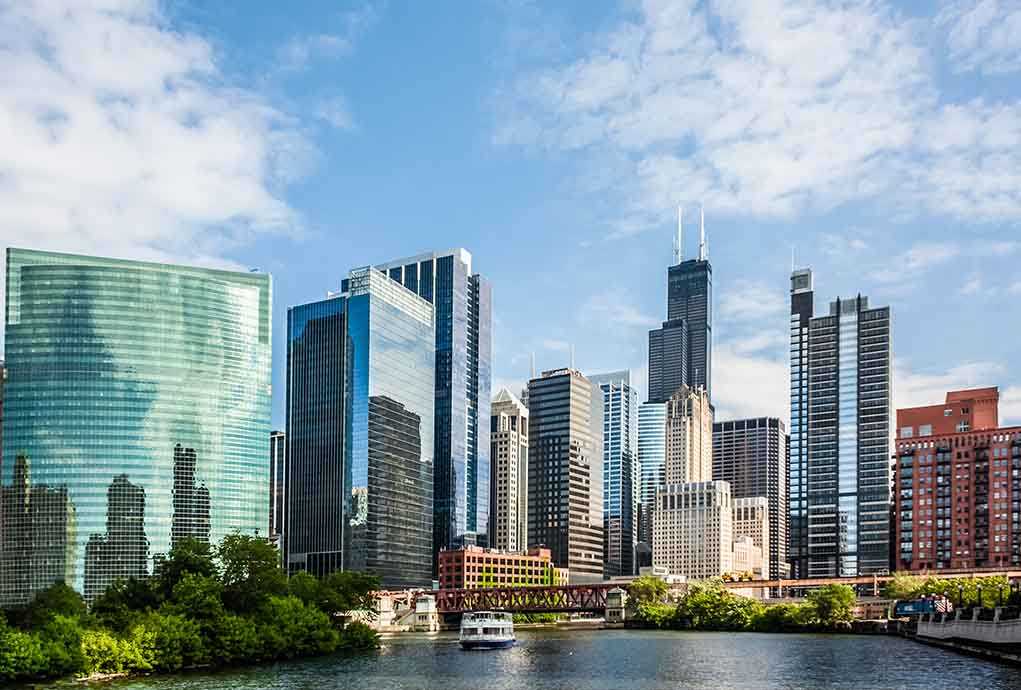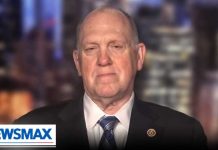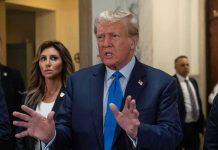
President Trump’s deployment of 300 National Guard troops to Chicago signals a decisive stand against violent unrest and illegal immigration, igniting both fierce support and heated opposition.
Story Snapshot
- President Trump sends 300 National Guard troops to Chicago following riots linked to immigration enforcement.
- The administration’s crackdown echoes broader national efforts to restore law and order and curb illegal immigration.
- Federal agents now operate under enhanced security, intensifying city-wide tensions and legal challenges.
- Conservative supporters view the move as a necessary response to years of weak enforcement and progressive overreach.
Trump Deploys National Guard to Chicago Amid Clashes
President Trump authorized the deployment of 300 National Guard troops to Chicago this weekend, aiming to safeguard federal agents tasked with fighting crime and enforcing immigration law. The move follows a series of violent clashes and riots erupting in response to the administration’s intensified immigration crackdown. Federal agents in the city now operate under heightened protection, as unrest grows among local activists and immigrant communities opposed to the new measures. The deployment marks a significant escalation in federal involvement in local law enforcement, reflecting the administration’s commitment to restoring order and enforcing the law.
Chicago, a city long plagued by surging violence and lax immigration enforcement, has become ground zero for President Trump’s tougher stance. The National Guard’s arrival is intended to reinforce federal personnel and deter further riots targeting law enforcement operations. Critics argue that the presence of military personnel in urban neighborhoods risks inflaming tensions and undermining trust between residents and authorities. Conservative supporters, however, see this as a necessary step after years of what they view as permissive policies that fueled chaos, endangered communities, and eroded respect for the rule of law.
Federal Crackdown Reflects Broader Immigration Policy Shift
President Trump’s decisive action in Chicago aligns with sweeping national changes to immigration policy since returning to office in January 2025. The administration has declared a national emergency at the southern border, suspended most refugee admissions, and directed aggressive ICE raids in major cities. New policies have eliminated protections for immigrants in sensitive locations like schools, hospitals, and churches, resulting in arrests and deportations at unprecedented rates. The administration claims that these measures have dramatically reduced illegal border crossings, fulfilling campaign promises and reversing trends seen during the previous administration.
The federal crackdown has triggered legal challenges and widespread debate about the limits of executive authority. Attorney General Pam Bondi’s directive allowing law enforcement to enter migrants’ homes without warrants and efforts to retaliate against attorneys opposing deportations have raised constitutional concerns. Despite opposition from advocacy groups and some local governments, federal pressure has compelled many states and cities to comply with immigration enforcement or risk penalties. The new approach has led to hundreds of thousands of deportations since January, with estimates ranging from 140,000 to over 207,000 migrants removed by June 2025.
Conservative Reaction: Restoring Order and Defending Values
The deployment of troops and the broader crackdown are hailed by many conservatives as overdue corrections to years of progressive policy failures. Supporters argue that restoring law and order, defending borders, and protecting communities from criminal elements are fundamental government responsibilities. They point to rising crime, economic disruption, and social unrest as consequences of the previous administration’s lax enforcement and “woke” agendas. The move to secure Chicago, in particular, is seen as a strong signal that the era of tolerance for lawlessness, government overreach, and disregard for constitutional values is ending.
Nonetheless, critics warn that aggressive tactics risk undermining civil liberties, stoking fear, and deepening divisions within cities like Chicago. Legal experts have flagged potential violations of due process and the erosion of constitutional protections. As the administration continues to press its agenda, the outcome in Chicago will serve as a bellwether for the nation’s future approach to law enforcement, immigration, and the balance between security and liberty. Limited data is available on the long-term impact, but key insights highlight the stakes for conservative values and the American constitutional tradition.
Sources:
Project 2025: What’s At Stake for Immigrants’ Rights
Immigration policy of the second Trump administration – Wikipedia
The Trump Administration’s 2025 Changes to Immigration Law















